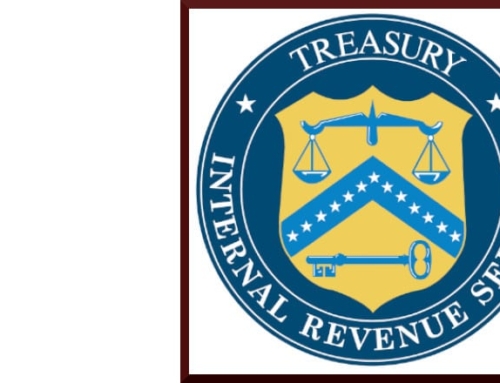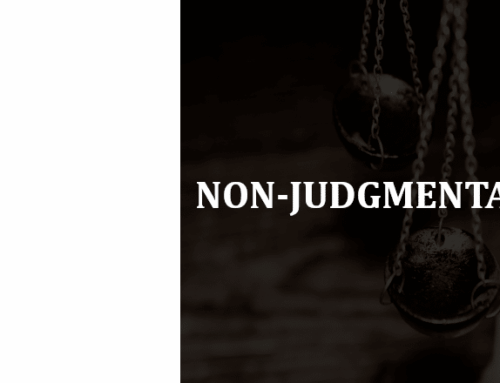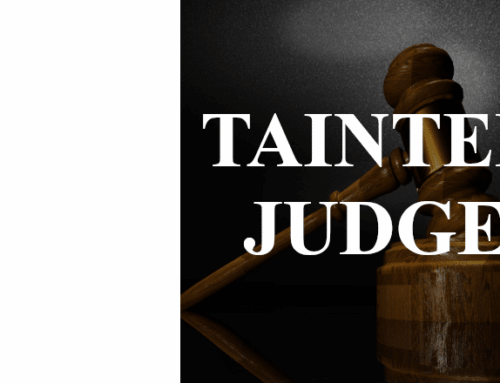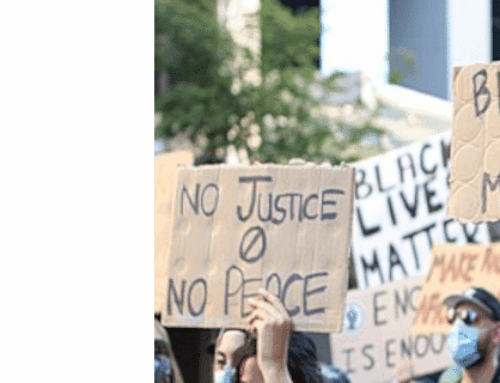University of Mississippi professor Ronald Rychlak, one of the world’s foremost scholars of the Catholic Church’s role during the Holocaust, was included in last night’s episode of the CNN series on the papacy. He serves on the board of advisors of the Catholic League. He prepared the following assessment of the April 8th edition for the Catholic League. Here are his remarks:
For the past month, CNN has been running weekly episodes of a series called Pope: The Most Powerful Man in History. Each episode focuses on an era and lays out issues that faced the papacy at that time. On April 8, the episode was on the World War II-era popes, Pius XI (1922-1939) and Pius XII (1939 to 1958). The episode focused on the Vatican’s response to the Holocaust. I participated as a commentator.
Unfortunately, it is impossible to properly lay out and evaluate all the facts and circumstances of this era in an hour-long program (minus time allotted for commercials). My book Hitler, the War, and the Pope is over 600 pages long, and I wrote two other books on the topic just to analyze some of the issues raised by these facts. The episode did not come close.
CNN avoided the pop journalists who too often populate such debates, but even among serious scholars, there is debate and confusion. Given the time constraints, it was necessary for the producers to make cuts and avoid many details. Of course, when that happens, the tendency is to raise the controversial point, ignore the details and the nuance, and leave the viewer to assume the worst. That happened quite a bit in this episode.
One such instance related to the 1929 agreement between Italy and the Holy See, the Lateran Treaty. This agreement reconciled a difficulty that had existed since the fall of the Papal States in 1870. In it, the Vatican recognized the kingdom of Italy, received compensation for property that had been seized, and defined the rights and obligations of the Church and State. According to CNN, it also set a precedent that the Vatican would be willing to negotiate with dictators for sovereignty. That is simply not correct.
Fascists from around the world viewed this treaty as a betrayal by Mussolini and thought he sold out to the Church. Perhaps regretting that he had gone so far, in the month following its signing Mussolini stated: “Within the State, the Church is not sovereign, nor is it even free… because it is subordinate… to the general law of the State. We have not resurrected the Temporal Power of the Popes, we have buried it.” For his part, Pius XI noted that Catholicism was in significant ways inconsistent with Fascism. He explained the agreement by saying: “Where there is a question of saving souls, We feel the courage to treat with the Devil in person.” A few years later he issued the encyclical, Non Abbiamo Bisogno (We Have No Need) in Italian to make it accessible to the Italian people. He released it, however, in Paris rather than the Vatican because otherwise Mussolini might have prevented its distribution.
In reaching accord with Italy, Pius XI treated it the same way he treated other nations. Even if a state might stand to gain in the short term, governments do not last, and eventually the Church would be better positioned if it had a relationship with the people. Moreover, the Lateran Treaty provided that the Church reserved “the right to exercise her moral and spiritual power in every case.” So, while the Holy See was officially neutral, it did not relinquish the right to speak on moral truths. None of this was seen on CNN.
Similarly, the 1933 concordat with Germany was portrayed as a capitulation to Hitler. In reality, it was a defense mechanism that permitted the Church to save souls. Naturally, the Church insisted on a provision permitting it to speak to moral issues. Hitler, who first thought he could exploit the concordat, soon saw it as being used by the Church to protect Jews (with real or forged baptism certificates), and he vowed to end it immediately after the war. That was not mentioned on CNN.
The show did a nice job of explaining the importance of Pius XI’s anti-Nazi encyclical, Mit brennender Sorge, but it ended by saying that this was the only time he spoke to all of Germany about the Nazis and the horror faced by Jews. Not only does that overlook numerous statements by the Vatican’s radio and newspaper, it also fails to explain that the encyclical was immediately suppressed, doing no actual good for the victims; only leading to more persecution. In fact, two other messages – one from Poland and one from Holland – urged the pope not to speak, lest he cause more suffering. Neither was mentioned on the show.
CNN gave Pius XII credit for his significant role in drafting Mit brennender Sorge. Unfortunately, it suggested that the wording was diplomatic and not sufficiently forceful. No mention was made of the numerous drafts that were recently discovered. Some were more forceful while others were less so. Obviously, the pope and his assistants were struggling to hit the right tone. One might quibble, but they got it about right.
CNN mentioned an encyclical that Pius XI was working on at the time of his death. Fortunately, it did not call this a “hidden encyclical,” as is often done. There was, however, no mention of Pius XII’s first encyclical, Summi Pontificatus, which drew the same research while eliminating anti-Semitic passages from the earlier draft. Summi Pontificatus is essential to understanding Pius XII’s approach to a wartime papacy. I devoted a chapter to it in my book, but CNN did not even mention it.
CNN told of Pius XII’s 1942 Christmas message, but omitted the most important passage in which he said mankind owed a solemn vow “never to rest until valiant souls of every people and every nation” arise and “devote themselves to the services of the human person and of a divinely ennobled human society.” Mankind owed this vow to “the hundreds of thousands who, through no fault of their own, and solely because of their nation or race, have been condemned to death or progressive extinction.”
Listeners on both sides of the war understood that this was a direct reference to the Jews. A Christmas Day editorial in the New York Times praised Pius XII for his moral leadership in opposing the Nazis: “No Christmas sermon reaches a larger congregation than the message Pope Pius XII addresses to a war-torn world at this season. This Christmas more than ever he is a lonely voice crying out of the silence of a continent.” The Nazis also understood. According to a report by Heinrich Himmler’s Superior Security Office:
“In a manner never known before, the Pope has repudiated the National Socialist New European Order…. It is true, the Pope does not refer to the National Socialists in Germany by name, but his speech is one long attack on everything we stand for…. God, he says, regards all people and races as worthy of the same consideration. Here he is clearly speaking on behalf of the Jews…. [H]e is virtually accusing the German people of injustice toward the Jews, and makes himself the mouthpiece of the Jewish war criminals.”
CNN included Mark Riebling and his important work showing Pius XII’s involvement with the plot to assassinate Hitler. Unfortunately, the show suggested that this was an unsettled proposition because there was no written evidence. As Mark explained, there are tape recordings proving his involvement!
Similarly, after explaining that the pope knew that written evidence could get people in trouble with the Nazis, a commentator questioned the papal role in sheltering Roman Jews because there are no surviving written papal orders. Some mention should have been made of the numerous eyewitnesses who testified to receiving or overhearing orders from the Vatican.
Near the end of the program, one commentator, Suzanne Brown-Fleming, receives much attention as she assesses whether Pius XII deserves to be called a saint. As an initial matter, that seems a particularly internal matter for the Church, not for commentators. She, however, professes to speak not only as a historian but also as a Catholic, so perhaps she has standing. Her analysis, however, is weak.
First of all, without any context (which may be due to editing by the producer), she quoted from a 1919 letter written by the future Pope Pius XII. It used some offensive-sounding language while referring to certain “Jews.” Left unexplained was that this was a grossly distorted translation, with pejorative words that are not faithful to the original Italian. When this letter was first published in its original Italian, no one suggested that it was anti-Semitic. The tone of anti-Semitism was introduced only by a calculated mis-translation by a noted papal critic. I included an accurate translation in the second edition of Hitler, the War, and the Pope (2010).
Moreover, any disrespect reflected in the language did not stem from racial or even religious differences, but from the Bolshevik activity in Munich. There was animosity between the Church and the revolutionaries, and they were the focus of the comment, not all Jewish people. This letter described the leaders of a rogue government that had persecuted the people of Bavaria. It was written 14 years before Hitler came to power and the Jewish persecution began. Its misuse in the television program was offensive.
Brown-Fleming also suggested that Pius XII’s diplomatic response to the Holocaust may have been influenced by anti-Semitism. Earlier in the program, however, I had noted that 2,500 Catholic priests were interned at Dachau. The diplomatic approach that Pius used toward these leaders of his own church was the same that he used for Jewish victims. Priest or peasant, the pope did not vary his approach to the problem. One might legitimately question whether he made the right call, but one cannot honestly question his intent.
Brown-Fleming says that one must wait until the remaining archives are opened before a decision can be made on Pius XII’s sainthood cause. She is wrong. It is probably time to open the archives, and whether prudential judgments were correct can be debated, but that is not the issue. One can make a reasoned decision about Pius XII’s intent and motivation on the basis of the evidence that is already available. In fact, the Congregation for the Causes of Saints has done that. It has concluded that Pius XII led a life of heroic virtue. The bishops and theologians have also approved him for canonization. The work continues only to verify a miracle.
CNN should have noted that Jewish groups from around the world praised Pius at the end of the war and at his death. Also unmentioned was that Pope Francis – an apparent favorite of the producers – has often praised Pius XII. Just last June he asked: “How many, beginning with Pius XII, took risks to hide Jews so that they wouldn’t be killed, so that they wouldn’t be deported? They risked their skin!”
While there is much to learn about the popes of World War II, viewers should not think that they have learned the full story just by watching this series, much less a single episode. Even well-intended producers and commentators are limited by the constraints of the clock.









